
Candice's recent e-mail got me thinking about Ford's performance on a global scale;
While all the news about Ford has been how poorly they're doing in US market, it's also true that around the world Ford is doing very well. In fact, it's Ford's sales around the world that keep them afloat. While market share shrinks in the US, it's growing in places like China, Russia and India, and stable or increasing marginally in places like Europe, Africa, Latin American and Asia. And why is that? Well it's simple, Ford has been in many of these markets for decades, and produces cars that are flexible and competative. Take the Fiesta pictured above, it's available in most of the markets Ford does business in.
 And Ford doesn't shy away from Niche vehicles either, take the Ka, a sub-sub-compact, based on Fiesta mechanicals that's poplular in Europe and available in other markets like Latin America (including Mexico.)
And Ford doesn't shy away from Niche vehicles either, take the Ka, a sub-sub-compact, based on Fiesta mechanicals that's poplular in Europe and available in other markets like Latin America (including Mexico.)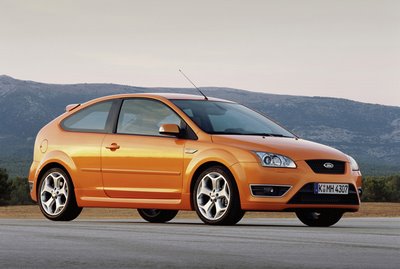 The Ford Focus is a "World Car", the staple of Ford's business world wide. Despite the US version, the Euro version is actually the Focus for the majority of the globe, available anywhere Ford does business (except North America) in 3/5 door hatchback, 4 door sedan and station wagon models, with several gasoline and diesel power plants. There are even Flex Fuel and Hydrogen Fuel Cell test fleets. Besides the F-Series truck, this would be the next most recognizable vehicle from Ford on the world market.
The Ford Focus is a "World Car", the staple of Ford's business world wide. Despite the US version, the Euro version is actually the Focus for the majority of the globe, available anywhere Ford does business (except North America) in 3/5 door hatchback, 4 door sedan and station wagon models, with several gasoline and diesel power plants. There are even Flex Fuel and Hydrogen Fuel Cell test fleets. Besides the F-Series truck, this would be the next most recognizable vehicle from Ford on the world market.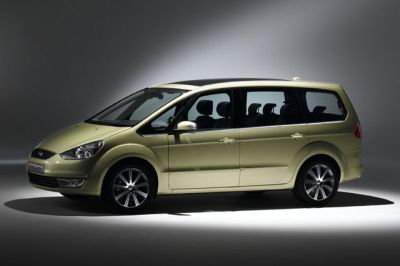 But it's not just small cars that Ford does well, in Europe they have several MPVs, what we call Min Vans. From the Focus based C-Max, to the S-Max and Galaxy, Ford has MPVs that are stylish, practical and bottom line sell well. One big part of Ford's sucess in world markets is the common platforms and powertrains used to share the costs of production.
But it's not just small cars that Ford does well, in Europe they have several MPVs, what we call Min Vans. From the Focus based C-Max, to the S-Max and Galaxy, Ford has MPVs that are stylish, practical and bottom line sell well. One big part of Ford's sucess in world markets is the common platforms and powertrains used to share the costs of production. 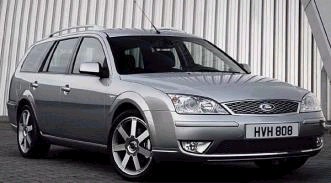 The Ford Mondeo is better known around the world, than the Taurus ever would be. The mid-size sedan and wagon see duty from Europe and Asia to Latin America and Africa. Ford tried to bring this to the US as the Contour, but it's size was too small to compete well, and Ford didn't manage the model well here.
The Ford Mondeo is better known around the world, than the Taurus ever would be. The mid-size sedan and wagon see duty from Europe and Asia to Latin America and Africa. Ford tried to bring this to the US as the Contour, but it's size was too small to compete well, and Ford didn't manage the model well here.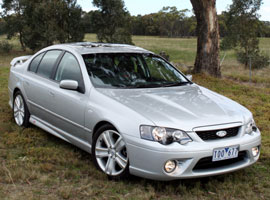 Some markets closer to the US model, like Australia, New Zealand and South Africa get special models available nowhere else. The Falcon range includes sedans, wagons, utes and crossovers. And they're compitent powerful vehicles with an apeal that would make them good sellers in the US.
Some markets closer to the US model, like Australia, New Zealand and South Africa get special models available nowhere else. The Falcon range includes sedans, wagons, utes and crossovers. And they're compitent powerful vehicles with an apeal that would make them good sellers in the US.  But the real point of mentioning the Aussie Fords, is to illustrate that Ford can and will adapt to each market, with vehicles tailored to them.
But the real point of mentioning the Aussie Fords, is to illustrate that Ford can and will adapt to each market, with vehicles tailored to them. 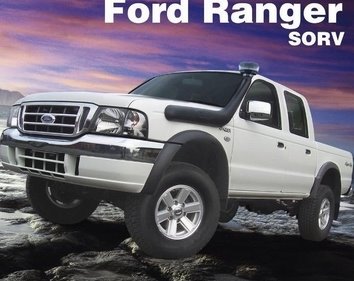 And the F-Series isn't the only winner on a global scale for Ford. The Ranger/Courier is among the worlds most popular compact trucks. And for good reason, with the available petrol V6 and Diesel I4, now joined by a new Diesel V6, they have the power and economy the world needs. While Ford has let the Ranger grow stale here in the US, they know better than to neglect it on the world scene.
And the F-Series isn't the only winner on a global scale for Ford. The Ranger/Courier is among the worlds most popular compact trucks. And for good reason, with the available petrol V6 and Diesel I4, now joined by a new Diesel V6, they have the power and economy the world needs. While Ford has let the Ranger grow stale here in the US, they know better than to neglect it on the world scene.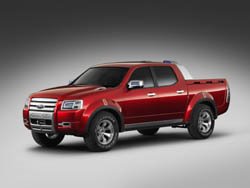
That's why this new Ranger concept was shown in Thailand instead of New York or Detroit. Ford knows how important it will be for them in world markets, emerging or established. Too bad they don't recognize how viable this could be for the US. Especially with gas over $3 a gallon, it would be great to see the new Ranger here.
Overall Ford knows what it takes to compete on a global scale and responds quickly to changes and trends in these markets. They design vehicles and plarforms that are adaptive and competative. It seems that Ford gets the idea globally, but in the US the message gets lost in translation. Or maybe it's consumers, I'm not sure who to blame now.

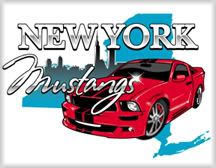




No comments:
Post a Comment